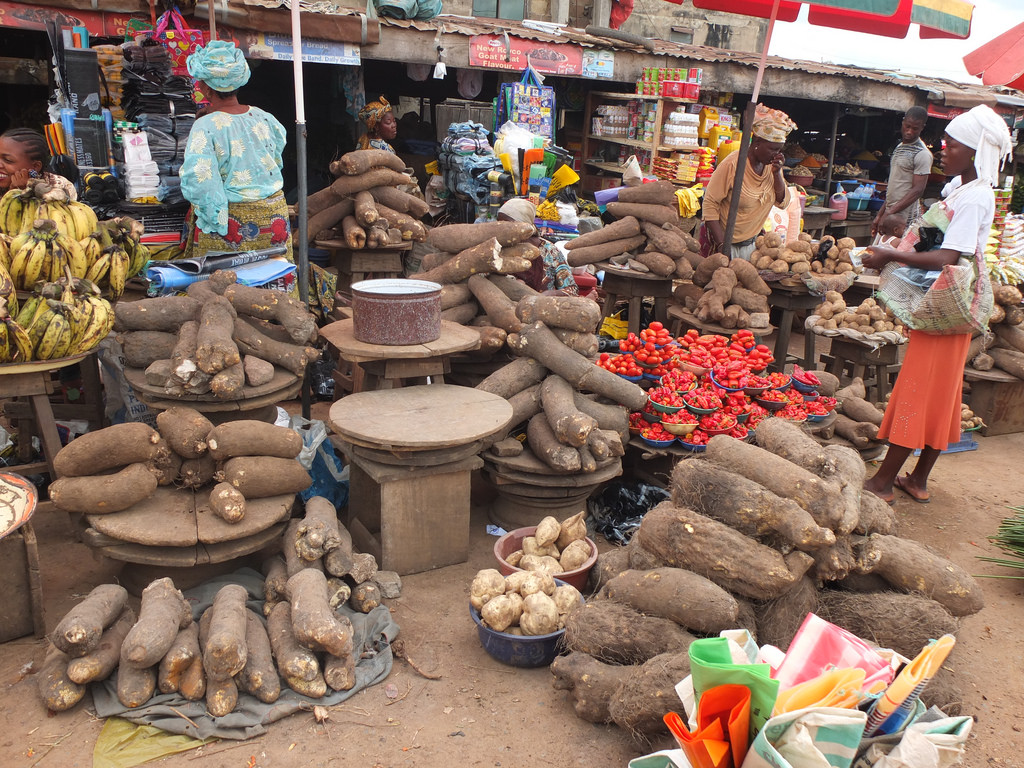Bandits’ attacks on Nigeria’s food security deserve quick response
The recent attacks by bandits on farmlands, resulting in the destruction of harvested produce, have raised further concerns about Nigeria’s food security. These brazen acts of violence, which directly target food production, have further exposed the fragility of the country’s agricultural sector, putting millions at risk of hunger. Farmers who persevered through various challenges to […]

Food security
The recent attacks by bandits on farmlands, resulting in the destruction of harvested produce, have raised further concerns about Nigeria’s food security. These brazen acts of violence, which directly target food production, have further exposed the fragility of the country’s agricultural sector, putting millions at risk of hunger.
Farmers who persevered through various challenges to cultivate their lands entered the harvest season only to face devastation. On November 10, bandits reportedly set harvested maize ablaze in Kwaga village and Unguwar Zako, both located in Birnin Gwari LGA of Kaduna State. The attack left affected farmers heartbroken.
Just nine days later it was reported that suspected gunmen set fire to multiple farms and kidnapped several people in some villages of Zamfara State. The attackers began their rampage in Farin Ruwa town in Maru LGA, where they torched farmers’ fields. Similar attacks were carried out in Wanke and Zargada villages, where crops were burned.
According to the report, residents of the areas bordering Kebbi State lamented the substantial losses they faced, including crops such as maize, yams, cotton, and beans.
- We’re committed to gender equity, women empowerment policies – Shettima
- IRAN: Khamenei says ICC warrant for Netanyahu not enough
Tragically, these incidents occurred within the same month that the United Nations (UN) Food and Agriculture Organisation, the World Food Programme, the Federal Ministry of Agriculture and Food Security, and other partners projected that 33.1 million people across 26 states and the Federal Capital Territory (FCT) will face food and nutrition crisis between June and August next year.
The states affected include Kaduna and Zamfara, where these latest attacks occurred, as well as Sokoto, Borno, Adamawa, Yobe, Gombe, Taraba, Katsina, Jigawa, Kano, Bauchi, Plateau, Kebbi, Niger and Benue – often referred to as the nation’s food basket.
The devastating consequences of these recent attacks have added another layer of difficulty for farmers who already face significant challenges. The food security situation in Nigeria has been precarious for some time, and these attacks only exacerbate an already dire situation. Farmers who have battled numerous obstacles now face the additional trauma of having their harvests destroyed by bandits.
This newspaper has reported several times that farmers in Kaduna, Katsina, Zamfara, Sokoto, and other northern states have had to pay bandits before being allowed to access their farms for planting. During harvest, some of these farmers again had to pay bandits before being permitted to take their produce home.
This ongoing extortion comes amid growing fears that, despite bumper harvests in parts of the country, food shortages could become inevitable unless farmers and their crops are properly protected.
Sadly, these attacks are not new. In late 2020, suspected members of the Islamic militant group, Boko Haram, killed at least 110 rice farmers in Garin-Kwashebe’s rice field in Zabarmari, Borno State, while they were harvesting their crops. Two years earlier, the same rice field was attacked, leaving four farmers dead and halting the cultivation of the area.
These incidents are but a few examples of the attacks on Nigeria’s food production, which threaten the country’s food sufficiency and pose even greater problems in the coming years. The latest incidents serve as a stark reminder that insecurity in Nigeria persists, particularly in the North West, which has long been plagued by banditry.
The situation is alarming, as Nigeria is already grappling with a food crisis caused by farmers’ inability to access their lands due to the activities of non-state actors. President Bola Ahmed Tinubu himself addressed this issue at the G-20 Summit in Rio de Janeiro, Brazil, stating, “I am from Nigeria, and it is better to give you the true picture of what is going on in Africa. We have terrorism challenges – insecurity challenges that are preventing farmers from even going to their farms.”
However, beyond these statements, it is crucial for the government to take immediate and decisive action. We are not merely facing insecurity; the latest developments, if left unaddressed, point to a looming famine. Our food security situation is already precarious, and hunger is ravaging the common people. This issue must be tackled head-on.
The government and its security apparatus must adopt a proactive, technology-driven strategy to put an end to these heinous acts, which are only deepening the country’s poverty. The conversations surrounding forest rangers must be revived. These discussions were prominent before the 2023 elections as part of efforts to secure food production. Yet, we must ask: where are the forest rangers?
We also align with the views of respected Nigerians and groups like the Arewa Consultative Forum (ACF), that argue that the growing food crisis should be addressed through both short-term and long-term measures, including imports where necessary. Ultimately, the long-term solution lies in achieving food self-sufficiency. It is unconscionable for a country like Nigeria, with its vast arable land, to rely on foreign nations to feed its citizens.
It is essential for the government to recognise that no matter the intentions behind its economic policies, without guaranteeing food security, those policies will be ineffective. The country cannot afford to delay action on this front any longer.
